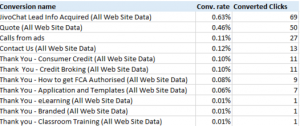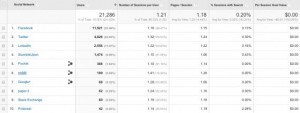Forget FLoC says Google, betting instead on topics of interest as a means of segmenting and targeting audiences.
Google will replace Federated Learning of Cohorts (FLoC) with a new interest-based targeting proposal called Topics, the company announced Tuesday.
The Topics API will share a limited number of topics of interest, based on the user’s recent browsing browsing history, with participating sites without involving external servers. Users will be able to review topics assigned to their profile and remove them. There are no plans at this stage to allow them to add topics. Google says it will have a process in place to exclude potentially sensitive topics like race and sexual orientation. The final iteration of the user controls, as well as other technical aspects of how Topics works, will be determined based on the trial and feedback, Google said.
We reported in the Daily Brief last August that this change was being contemplated.
Google had no news to announce with respect to its Privacy Sandbox Timeline for deprecating third-party cookies, although it conceded it might change depending on trials and feedback.
How it will work. “With Topics, your browser determines a handful of topics, like ‘Fitness’ or ‘Travel,’ that represent your top interests for that week based on your browsing history,” Google said in the announcement.
Up to five topics are associated with the browser. Topics are stored for three weeks and the processing occurs on the device, without involving any external servers, including Google’s own servers.
Google is starting this initiative with about 300 topics “that represent an intersection of IAB’s Content Taxonomy V2 and also our own advertising taxonomy review,” said Ben Galbraith, Chrome product director, “This is a starting point; we could see this getting into the low thousands or staying in the hundreds [of topics].”
When a user goes to a participating website, the Topics API selects three topics (one from each of the past three weeks) to share with that site and its advertising partners. If a site does not participate in the Topics API, “Then it doesn’t provide a topic nor does it receive a topic,” Galbraith said. The site itself or its advertising partners can opt in to the Topics API.
Google has also published a technical explainer containing more details about the Topics proposal.
The difference between FLoC and Topics. One of the main distinctions between Google’s previous targeting proposal, FLoC, and the Topics API is that Topics does not group users into cohorts. As the Electronic Frontier Foundation has pointed out, fingerprinting techniques could be used to distinguish a user’s browser from the thousands of other users within the same cohort to establish a unique identifier for that browser.
Additionally, under FLoC, the browser gathers data about a user’s browsing habits in order to assign that user to a cohort, with new cohorts assigned on a weekly basis, based on their previous week’s browsing data. The Topics API determines topics to associate with the user on a weekly basis according to their browsing history, but those topics are kept for three weeks. They are shared with participating sites and advertisers rather than a FLoC cohort ID.
The difference between contextual advertising and Topics. Galbraith confirmed that, unlike traditional contextual advertising, users can be targeted by topic even on sites that have nothing to do with the topic. In other words, someone that had showed interest in camping equipment in the previous three weeks might be targeted with ads for tents on a sports website.
“Time will tell” which browsers will adopt. Google is in the early phases of implementing the Topics API, so other browsers likely won’t have had a chance to evaluate it. But, Chrome was the only browser to adopt its predecessor (FLoC), so it’s unlikely that Firefox, Safari, Edge or other browsers will adopt Google’s proposal this time either.
“We’re sharing the explainer, which is the beginning of that process to discuss with other browsers their view on the Topics API, so time will tell,” Galbraith said.
Why we care. Google is currently set to deprecate third-party cookies in Chrome sometime next year and now we have a better idea of what audience targeting options will be available. Although FLoC is now officially off the table, the remarketing solution FLEDGE is still under consideration.
Prior to the Topics API, Google ran into a number of challenges with FLoC, including lack of adoption, industry pushback and regulatory issues. The company has likely addressed some of those challenges with this new proposal, but adoption among other browsers remains unlikely, which could impact how big of a user base advertisers are able to get in front of.
Galbraith declined to make explicit comment on the alternative identifiers being developed within the adtech industry, only saying that Google believes that the days of tracking consumers are over.
Additional reporting by Kim Davis.
The post FLoC is off the table as Google switches to targeting by Topics appeared first on MarTech.
MarTech(40)
Report Post








